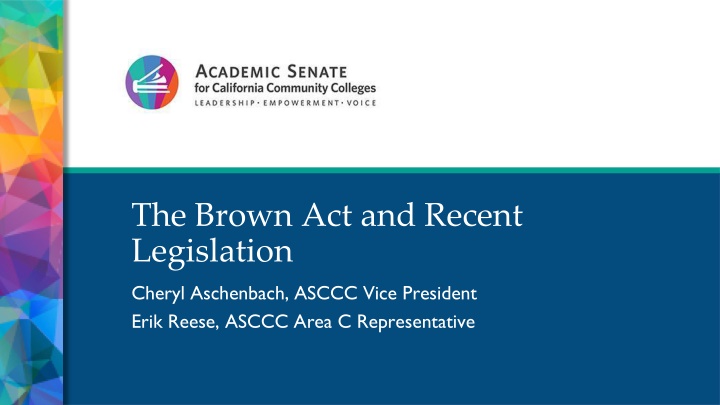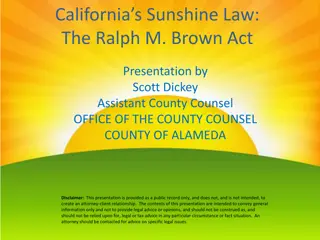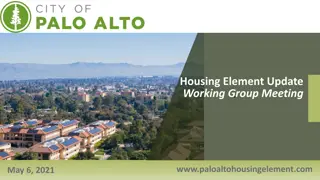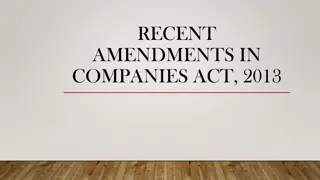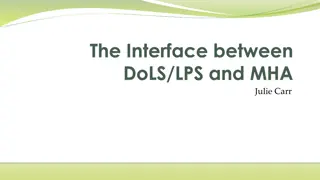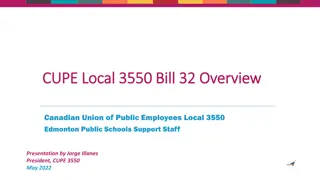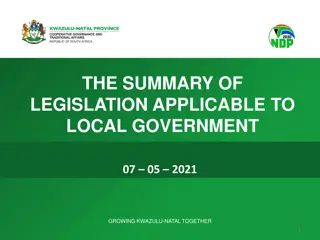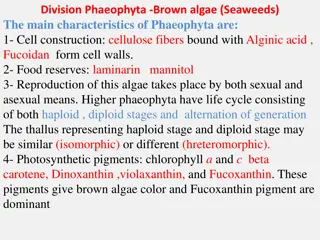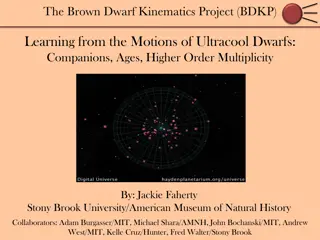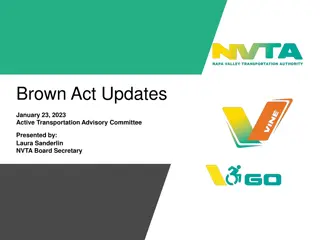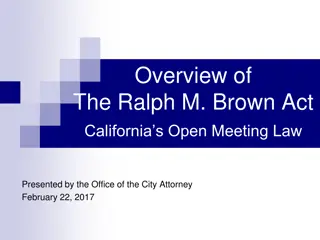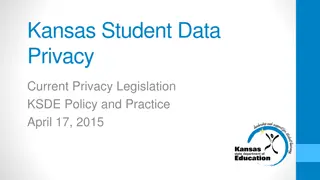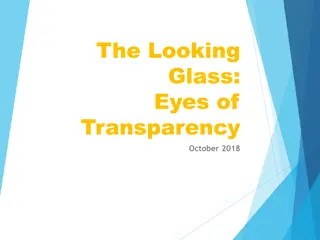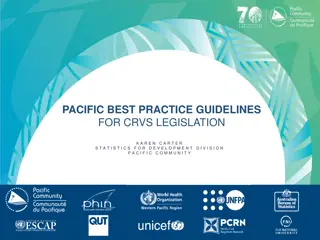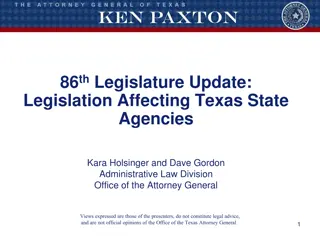The Brown Act and Recent Legislation Overview
Discussing the implications of the Brown Act and recent legislation on transparency, inclusion, and legislative bodies, emphasizing the importance of open deliberations and the people's right to information.
Download Presentation

Please find below an Image/Link to download the presentation.
The content on the website is provided AS IS for your information and personal use only. It may not be sold, licensed, or shared on other websites without obtaining consent from the author.If you encounter any issues during the download, it is possible that the publisher has removed the file from their server.
You are allowed to download the files provided on this website for personal or commercial use, subject to the condition that they are used lawfully. All files are the property of their respective owners.
The content on the website is provided AS IS for your information and personal use only. It may not be sold, licensed, or shared on other websites without obtaining consent from the author.
E N D
Presentation Transcript
The Brown Act and Recent Legislation Cheryl Aschenbach, ASCCC Vice President Erik Reese, ASCCC Area C Representative
Brown Act Transparency Inclusion 3
Outline Background Legislative Bodies & Application to Academic Senates Basic Requirements Impact of COVID-19 and Recent Legislation 4
Caveat We are not lawyers Seek advice from a trained professional 5
Gov Code 54950 In enacting this chapter, the Legislature finds and declares that the public commissions, boards and councils and the other public agencies in this State exist to aid in the conduct of the people s business. It is the intent of the law that their actions be taken openly and that their deliberations be conducted openly. 7
Gov Code 54950 The people of this State do not yield their sovereignty to the agencies which serve them. The people, in delegating authority, do not give their public servants the right to decide what is good for the people to know and what is not good for them to know. The people insist on remaining informed so that they may retain control over the instruments they have created. 8
Legislative Bodies 9
Legislative Body (Gov Code 54952) Local body created by state or federal statute Committee (decision-making or advisory) created through formal action of a legislative body Standing committees with a continuing subject matter jurisdiction OR a fixed meeting schedule by formal action 10
What About Local Academic Senates? Joint action by faculty of a community college and district board is required to establish an academic senate This constitutes a formal action Attorney General Opinion 83-304 (1983) 11
Basic Requirements 12
Brown Act Key Requirements Agenda posted 72 hours in advance Specify time and location of meeting Posted in a location that is freely accessible to members of the public and on committee website (if there is one) Provide opportunity for members of the public to attend and address the legislative body Only deliberate on items on the agenda Publicly report any action taken and vote of each member present No secret ballots for actions 13
Public Deliberations Business of the legislative body must be performed in public Careful: A series of contacts that lead to a discussion with a majority of members Communications that reveal positions of other members of the body Members may congregate Simply do not discuss items within the bodies subject matter 14
Ever wonder why legislative bodies largely meet in person? Teleconferencing requires ( 54953b): All votes by roll call Agendas posted at all teleconference locations Each teleconference location is identified in the agenda and notice of meeting Each teleconference location is accessible to the public Members of public may address the legislative body at each teleconference location 16
Legislation & Teleconferencing 17
State of Emergency Options: AB 361 (Rivas) First executive orders and then AB 361 (Rivas) suspends some teleconference restrictions All votes still by roll call Teleconference disruption precludes taking any action Reconsider health and safety concerns every 30 days (majority vote) In effect until Jan 1, 2024 State of emergency is declared by the Governor per Gov Code 8625 18
Recently Signed Legislation: AB 2449 (Rubio) If quorum of members at same location in person Then some may participate via teleconference Non-emergency: just cause and provides notice Emergency provisions as well Limited to 3 months or 20% of regular meetings Must have both video and sound Process for ADA compliance All votes still by roll call Teleconference disruption precludes taking any action In effect until Jan 1, 2026 19
AB 2449 (Rubio) Cont. Emergency circumstances: physical or family medical emergency Just cause: Childcare or caregiving need of a child, parent, grandparent, grandchild, sibling, spouse, or domestic partner Contagious illness Physical or mental disability not otherwise accommodated Travel while on official business of the legislative body or another state or local agency 20
Brown Act Eras Now through Dec 31, 2022 Traditional Brown Act and AB 361 Jan 1, 2023 Dec 31, 2023 Traditional Brown Act, AB 361, and AB 2449 Jan 1, 2024 Dec 31, 2025 Traditional Brown Act and AB 2449 Jan 1, 2026 ? Traditional Brown Act Unless more legislation comes 21
Even More Recently Governor will end state of emergency on Feb 28, 2023 22
Parliamentary Procedure 23
Parliamentary Procedure How meetings are conducted is up to Senate Robert s Rules is not the only guide Consistency and transparency are key 24
Critical Information 25
Caveat We are not lawyers Seek advice from a trained professional 26
Send questions to info@asccc.org Cheryl Aschenbach caschenbach@lassencollege.edu Brown Act Transparency Inclusion Erik Reese ereese@vcccd.edu 27
